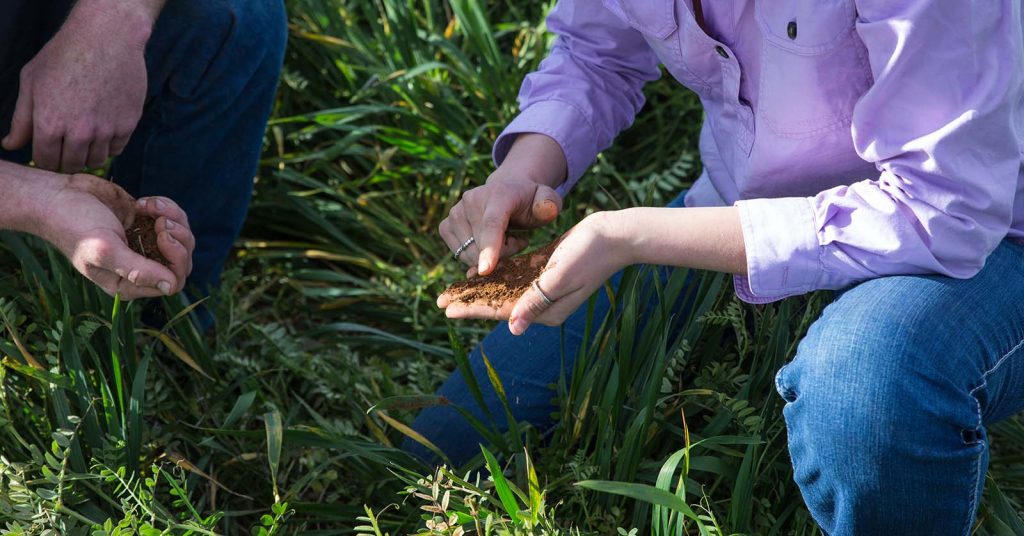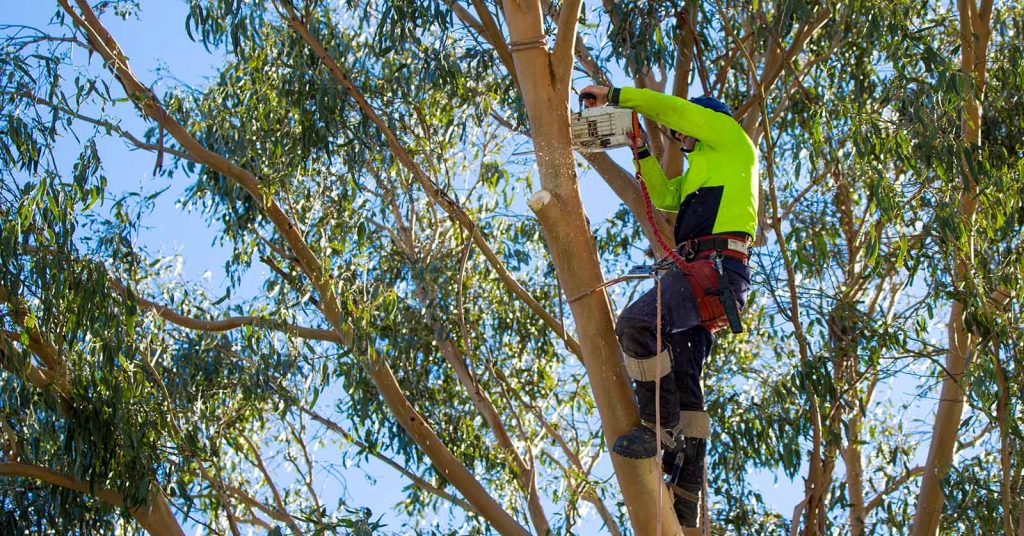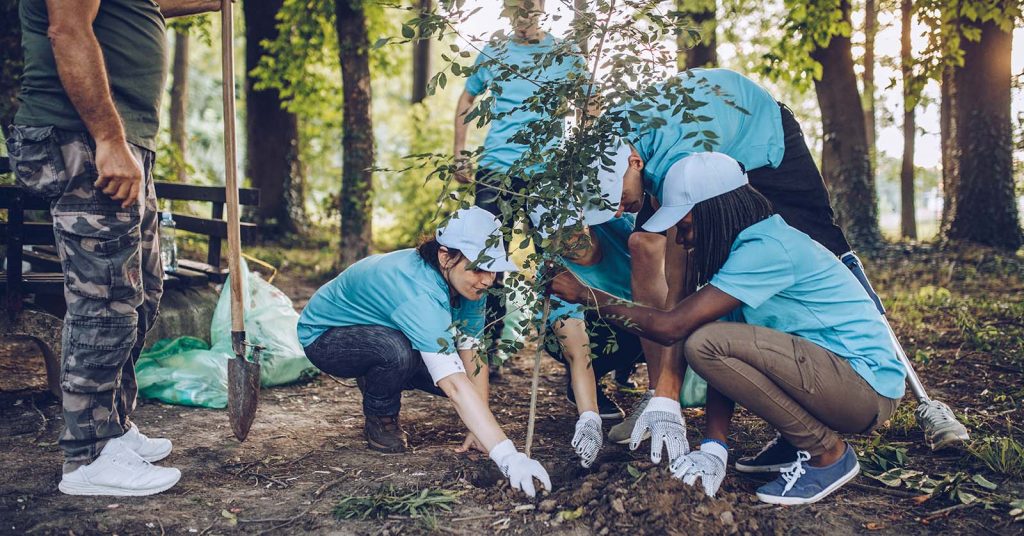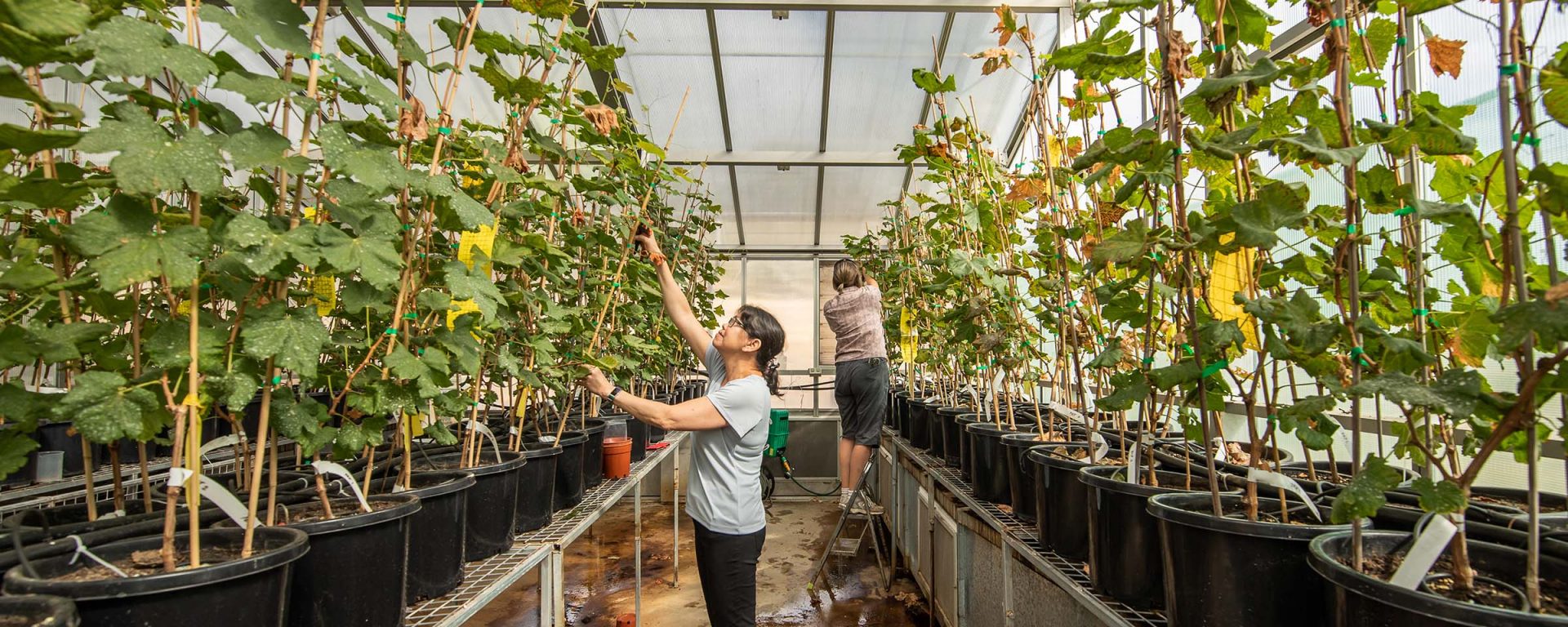Working with plants is a unique pleasure. As a career, horticulture encompasses a diverse range of fields, each bursting with potential for growth and fulfilment. Here are eight careers in horticulture that might plant the seed of where you want to go.
Plant breeder
Plant breeder is arguably one of the first things that springs to mind when you think of careers in horticulture. And it’s exactly what it says – someone who gets dirt under the fingernails to develop new plant varieties. It’s a role that combines practical skill with knowledge of plant science and genetics to select, cross-breed and modify plant species.
Working for an agriculture company, government agency, university or not-for-profit, this role empowers you to dig deep into research and bring your knowledge to bear on the process of creating plant varieties with desirable traits. Things like higher yield, disease resistance, improved nutritional content, or better adaptation to specific environmental conditions. In particular, resilience to extreme weather events that are becoming more common with climate change. It’s a career in horticulture at the cutting edge.

Seed analyst
Fancy – literally – germinating a career in horticulture? Work where it all starts as a seed analyst. You’ll test and evaluate the quality of seeds for germination, purity and viability in particular growing conditions. This is likely to involve work in the lab, in greenhouses and on the land. You’ll conduct research to develop new seed varieties or improve existing ones, often in collaboration with plant breeders and geneticists. Moreover, you’ll identify pathogens, pests or contaminants in seeds that could impact plant health and productivity.
Seed analysts can work for government bodies, ensuring seeds meet regulatory standards and certification requirements for sale and distribution. For seed companies, nurseries and agriculture firms, as well as testing laboratories and research institutions like universities, agricultural research centres and botanical gardens.

Arborist
An arborist, also known as a tree care specialist, specialises in the care, maintenance and management of trees. This could be in any number of work environments. From farms and commercial orchards, to city streets, public parks and helping individuals manage the trees on their property.
You’ll assess and prune trees to keep them healthy. And to keep people and infrastructure safe. You’ll make sure, for example, that branches are a safe distance from buildings and power lines. If a tree poses a safety hazard or is diseased, you might be required to remove it. Arborists also inspect trees for signs of pests and diseases, and provide treatments (tree-tments?) to improve the health of trees. Plus, during/after storms or other natural disasters, arborists are often called upon to remove fallen trees or branches that pose immediate dangers.

Horticultural extension agent
Share your knowledge and passion for plants. As a horticultural extension agent, you’ll provide outreach, education and assistance to individuals, communities and businesses involved in horticulture. You’ll be across all the latest developments in plant science and growing techniques, so that you can educate people about various horticultural topics such as plant selection, pest management, soil health, and sustainable gardening practices.
You could help farmers looking to increase yield or use ecological strategies to combat invasive insects. Community garden organisations who want to maximise the productivity of a shared pace. Or schools seeking to introduce students to the pleasures and benefits of knowing how to grow their own food. You could also work with universities or private enterprises on horticultural research projects, or with government agencies advising on policy relating to horticulture and environmental stewardship.

Greenhouse manager
A greenhouse manager oversees the daily operations of a greenhouse facility, ensuring that plants are grown effectively and efficiently. Greenhouses can be used for commercial plant purposes or in food production and, depending upon the structure of the business, you may work with the public or in a business to business arrangement.
This is one of the careers in horticulture that combines hands-on work with planning and management. So, you’ll use your knowledge about the stages of plant life in various climate conditions, and diseases that are a threat to them, to plan, plant and cultivate species across the year. You’ll keep a close eye on how the plants develop, and adjust things like fertiliser, irrigation and pest management to guarantee a good crop. You will also monitor the ‘data’ from the greenhouse, such as temperature, light and humidity, to maintain prime growing conditions. You may also manage staff and conduct growing experiments to see what’s feasible in terms of growing new varieties, or incorporating new technologies.

Botanical garden curator
Botanical gardens provide oases of calm and contemplation in the midst of the hustle and bustle of human life. As a curator, you will be responsible for managing the plant collections that help create this atmosphere. You’ll work closely with landscapers and gardeners to cultivate, acquire, plants and manage plant specimens. You are also likely to be involved in curating exhibitions and displays to showcase the diversity of plant life, often with a focus on conservation, ecology or different aspects of horticulture past, present and future.
In this role, you could also develop educational programs and materials for visitors of all ages. That could include guided tours, workshops, lectures and outreach activities. Curators often work closely with educators to integrate botanical knowledge into school curricula and community events. Moreover, you could work with researchers on projects to discover new knowledge. And be part of conservation efforts to protect endangered plant species and preserve biodiversity – such as curating seed banks and conducting habitat restoration projects.

Urban horticulturist
Plants play a crucial role in urban environments. They of course, provide a connection with nature for city dwellers, but they also help improve air quality, provide shade for buildings and so reduce energy costs, as well reduce food miles by providing locally-grown food.
Think rooftop gardens, community gardens, vertical farms and the transformation of abandoned lots in to thriving ecosystems. As an urban horticulturalist, you could work on all of these types of projects, designing green spaces, selecting the most appropriate plants, restoring habitats and designing parks and other public areas to maximise their biodiversity. You could also provide educational programs and workshops to the public. Educate people on topics related to urban horticulture, including gardening techniques, plant care and environmental stewardship. Whether working for a local council, a not-for-profit or a landscaping firm, your skills will help ‘green’ cities and help make them more resilient.

Horticultural therapist
Spend any time in a forest and you know that plants can be good for your soul. Work at the intersection of botany and wellbeing as a horticultural therapist. In this role, you’ll use gardening and plant-based activities to promote physical, emotional and mental health. For example by helping people be more active and get outdoors. Or helping people improve their self esteem by caring for plants. Or encouraging people to garden to improve their motor skills. For example, if they have suffered an injury or have a chronic condition.
You’ll design and facilitate therapeutic gardening activities tailored to the needs and abilities of your clients. These could include everything from the nuts and bolts of cultivation to organising trips into forests and other natural environments to provide calming situations away from stress. You could also be involved in designing gardens that are accessible, safe and encourage relaxation. Perhaps for an aged care facility, a prison population or a rehabilitation centre.

Careers in horticulture start with a degree in horticulture
Wherever you want to go in terms of careers in horticulture, a good grounding in the field is the very best starting point. Charles Sturt’s Bachelor of Horticulture gives you that and a whole lot more. Available conveniently online – but with lots of opportunities to get your hands dirty on campus and in work placements – you’ll cover the fundamentals of botany, plant science, soils and crop management.
Add in skills around irrigation, propagation and data, and you’re well on your way to a broad base of knowledge that will stand you in good stead in any horticulture career. If you already have your eye on a particular (garden) path, you can choose electives to work towards it – like landscape design, agriculture, flower crops or fruit growing.
Chat to our team of uni advisers for more info on careers in horticulture.


You must be logged in to post a comment.